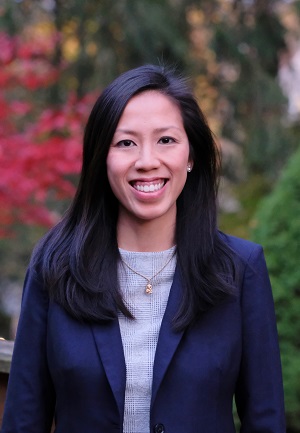
“Since 2011, ADAPT has built trust and fostered meaningful community-academic partnerships to advance the health and well-being of underserved communities in our local Greater Chinatown catchment area.”
MyDzung Chu, PhD, MSPH Director, ADAPT

“ADAPT members are invested, and not just in building community-research partnerships, but in bringing people together and collective action. We bring issues to the table that we hear about and are affected by, with an aim to make a difference in ways that are meaningful to the community.”
Dawn Sauma, MSW, LICSW Co-Executive Director of the Asian Task Force Against Domestic Violence (ATASK) and Community Co-chair of ADAPT
ADAPT
Overview
The ADAPT Coalition was established in November 2011 as part of Tufts Clinical and Translational Science Institute’s (CTSI) Community and Stakeholder Engagement (CSE) Program. The coalition was founded on principles of Community-Based Participatory Research (CBPR), including community-identified goals and priorities, shared decision-making, and co-learning. ADAPT prioritizes trust building and authentic partnerships to address community-prioritized issues. Since its inception, ADAPT has been a strong and dedicated research and education partner for community-based organizations, researchers, clinicians, and students at Tufts University and Tufts Medicine campuses in the Chinatown and Greater Boston communities.
Background
Tufts Medicine and Tufts University campuses are located in Boston’s Chinatown and surrounding cities (Quincy, Malden, Lowell), where there is a high proportion of low-income, limited English-speaking, and under-resourced populations, many of Asian descent. These populations face substantive health challenges, often due to the limited availability of culturally tailored and linguistically accessible social and health care services. Moreover, there is a lack of disaggregated data and research on local communities, which can contribute to the masking of different health needs across groups.
Mission, Vision, and Values
Mission
ADAPT is a coalition of community and academic partners committed to advancing the health, well-being, and visibility of our local communities through community-engaged research, education, and action that translate into improved service delivery, policies, and health.
Vision
We envision a healthy and thriving society where all communities are represented and meaningfully engaged in research, education, service delivery, and policies.
Values
We embrace the following core values in our engagement, partnerships, and work:
- Bi-directional learning and collaboration
- Asset- and strength-based approaches
- Principles of integrity, transparency, accountability, and mutual respect
- Community-prioritized research and action
Projects & Activities
ADAPT fosters bi-directional conversations about collaborative activities to link academic research expertise with community-identified priorities in the context of academic objectives of the university and the missions of community-building and service provision of ADAPT’s community partners.
Serving as an incubator, convener, and a co-learning space, ADAPT:
- Aims to raise awareness and facilitate community-engaged research that advances the health, well-being, and visibility of communities facing health challenges.
- Functions as a space for co-learning, mutual collaboration and the incubation of ideas and collaborations.
- Provides seminars and hosts an annual health symposium to engage research and clinical communities, public health practitioners, policy makers, and community leaders.
- Encourages researcher-community collaborative efforts to seek funding for research and services in our surrounding communities.
Research
ADAPT provides consultation and support for community-engaged research grants. It helps incubate academic-community research partnerships and secure seed funding for their work. Most recent research projects address community-identified health needs such as housing insecurity, gentrification, problem gambling, mental health, access to care, neighborhood preservation, and environmental conditions. Please contact us for a listing of our research projects and partnerships.
Education
Student learning opportunities: ADAPT provides learning opportunities for graduate and undergraduate students and connects them with potential research, internship, or volunteer opportunities in Chinatown and Greater Boston.
Annual Health Symposium: As part of its commitment to bi-directional research relationships, ADAPT conducts a yearly community forum/symposium for community building, research dissemination, and stakeholder input.
Stakeholder Meetings: ADAPT holds quarterly community meetings to provide a space for cross-disciplinary and community conversations.
Contact
To contact us, please submit a service request.
MyDzung Chu, PhD, MSPH, ADAPT Director
Chloe Yang, MPH, ADAPT Project Manager
Interested in learning more about and/or getting involved with ADAPT Join our listserv!



